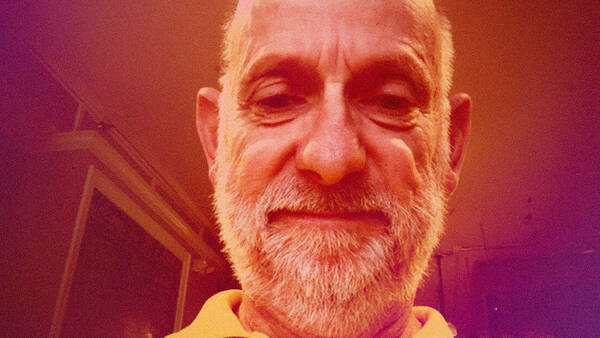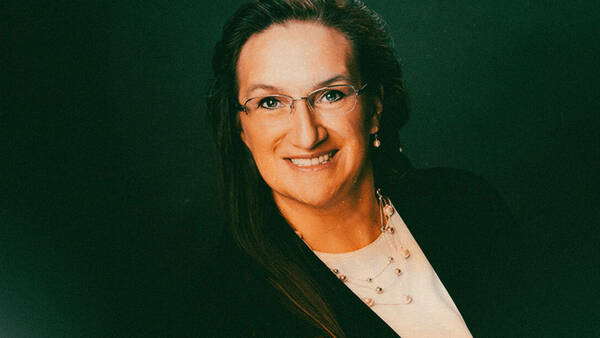Geraldine Mukumbi ’16 left her native Zimbabwe to come to Notre Dame in search of a kind of academic freedom.
Still entertaining aspirations of a “practical” future, the Hesburgh-Yusko scholar entered as a finance major. But her heart was always with the arts. She wanted the latitude to supplement her major with liberal arts classes, and unlike other parts of the world that confine students to the classes within their field of study, “the U.S. system is designed to allow you to explore and to experiment before you settle into a little academic box,” Mukumbi says.
Ultimately, her passions won out, and Mukumbi added an English major. She quickly found, however, that the academic freedom she sought still had some restrictions.
“My point of frustration with the English major department was how Eurocentric it was. It sort of viewed the body of literature as British literature and American literature. Like that was literature,” Mukumbi recalls. “That didn’t ring true to me and my experience, because other places exist, and other places have been writing and reading in English for decades. And I wanted what I studied to reflect the world that I knew.”
For a broader perspective, Mukumbi replaced her finance major with Africana studies. The major allowed her to explore the humanities in a way that centered the African experience and challenged her understanding of the Black diaspora. But perhaps her most eye-opening course was a class cross-listed with the Education, Schooling, and Society program.
The class, taught by professors Stuart Greene and Maria McKenna, exposed Mukumbi to the idea of community-based research. In addition to studying young adult fiction in a classroom setting, Mukumbi had the opportunity to engage students from the South Bend community in activities inspired by the books. For example, after reading The House on Mango Street, a novel by Mexican-American author Sandra Cisneros, Mukumbi and her peers had the local students give them tours of their own streets and prompted them to reflect on their neighborhoods. The culmination of the class was a research project focused on revitalizing South Bend, informed by the South Bend students’ experience in their own neighborhoods. The experience affected not only Mukumbi’s understanding of education, but also the trajectory of her life.
“That’s when I realized — maybe I want to be an educator. I wondered, ‘If this is possible, how can I expand my role in the classroom?’”
For Mukumbi, the course’s reading list was just as innovative as its approach to research.
“That was the first time I was in a college class where we read young adult fiction, and we treated it with the respect that it deserves. We very seriously read it in the same way I would read other books in an English literature class,” Mukumbi says.
The class felt like a disruption of the literary canon that Mukumbi had been straining against her whole life — in her English major, in high school, and even as a nascent book-lover in Zimbabwe.
“The libraries are not funded as much in Zimbabwe,” she said. “A lot of the books are old British books. When I was older, that’s when I started reading young adult books and thought, ‘Oh, as a kid, I would’ve loved this.’ The train passed for me, but it hasn’t for other kids. So I am going to make it my mission to expose kids to the books that they might actually enjoy.”
Mukumbi is now an English teacher at a school in Zimbabwe. Because of its colonial history, the country shares much of its literary canon with the Western English-speaking world. Mukumbi believes that young readers benefit when the primacy of that canon is questioned.
“There’s a disconnect between the books young people actually want to read and what state measures or standards say is important for young people to know. And that disconnect is where a lot of people fall out of love with reading.”
As a teacher, Mukumbi has worked primarily at start-up schools, which are not so beholden to tradition, enabling her to bring in varied texts that are more relevant to her students’ lives. Her classes study everything from science fiction and comic books to memes and TikToks.
“You start with what’s accessible, and then as students develop more skills, they can then get to the books that people regard as part of a canon.”
And there is a clear metric for measuring the success of her approach.
“The easiest one is to measure is how many times you introduce actual young adult fiction and a kid will come back and say, ‘Hey, do you have more books like this?’”
In May, Mukumbi was named a 2022 Knight-Hennessy Scholar. The program will cover Mukumbi’s tuition and expenses at the Stanford Graduate School of Education, where she will pursue a degree in curriculum studies and teacher education. At Stanford, Mukumbi hopes to perform the same kind of community-based research that she first learned about at Notre Dame to continue her project of making the study of literature more accessible to young people.
Mukumbi credits her instructors at Notre Dame with empowering her to believe she could truly have an impact.
“Professors like Professor Paul Ocobock, Professor Stuart Greene, and Professor Maria McKenna not only did the work of teaching me in class, but also treated me like I was a fellow co-creator in my own journey,” Mukumbi reflects. “What that did for me was that it gave me the confidence that I can influence how young people are taught.”
In the long-term, Mukumbi’s goal is to work with like-minded friends to open a small school in Zimbabwe that centers the arts.
“I’ve always felt that Zimbabwe as a country has just so much creative potential. But because we’re so focused on churning out lawyers, doctors, and businesspeople, the kids who are artistic get shortchanged. So trying to create a space where we can flip that and cater to the needs of creative students is something that I really want to explore in the next 10 to 15 years.”
Even for those students who don’t want to pursue the arts or literature as a vocation, Mukumbi believes that a love of reading can be transformative.
“There’s something deeply lonely about being a teenager, because you’re trying to figure out who you are, and you think you’re the only one who doesn’t know what’s happening. And that for me is the best gift that books give for young people — they allow you to not be alone.”



